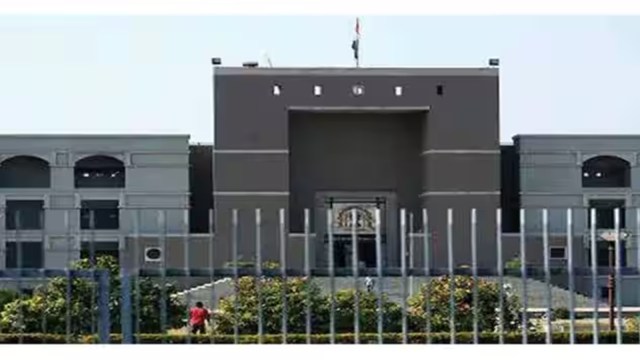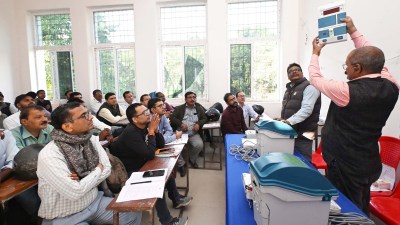Mulling reconsideration of amendments to Disturbed Areas Act, govt tells court
In 2017, The Indian Express had reported that GPC Infrastructure was blacklisted by the AMC for two years
 The court also noted that the state has not yet responded to the contentions being raised on the constitutional validity of the amended provisions in the bunch of petitions. (Representational Image)
The court also noted that the state has not yet responded to the contentions being raised on the constitutional validity of the amended provisions in the bunch of petitions. (Representational Image) In response to petitions challenging the constitutionality of the amendments to the Disturbed Areas Act of 2020, the state government has submitted before the Gujarat High Court that it is “contemplating” reconsideration of the amendments that have been challenged before the court.
A division bench of the High Court on Wednesday, however, made a note that the state government has not filed its response to date over the bunch of petitions challenging the constitutionality, except for one. The court also noted that the state has not yet responded to the contentions being raised on the constitutional validity of the amended provisions in the bunch of petitions.
The bench of Chief Justice Sunita Agarwal and Justice Aniruddha Mayee directed that the matter be brought to the Advocate General’s notice and reply affidavits be filed accordingly.
The petition, moved by Jamiat Ulama Welfare Trust and Nisar Ahmed Mohammad Yusuf Ansari who is the general secretary of Jamiat Ulama-e-Hind Gujarat, in 2020, primarily challenged the concept of “proper clustering of persons” as has been introduced and defined under the newly introduced Section 2(d) of the Gujarat Prohibition of Transfer of Immovable Properties and provision for Protection of Tenants from Eviction from Premises in the Disturbed Areas (Amendment) Act, 2020, or what is commonly known as the Disturbed Areas Amendment Act, 2020.
A division bench of the High Court in January 2021 had directed the state government to not issue any fresh notification in the operation of the amended sections of the Disturbed Areas Act, which deals with “improper clustering”. The 2020 amendment also resulted in the amendment of section 3 of the original Act of 1991. The amendment of section 3 subsection 1 (ii) and (iii) lays down that an area can be declared as disturbed area by the state government if the latter is of the opinion that “polarisation of persons belonging to one community has taken place or is likely to take place disturbing the demographic equilibrium of the persons of different communities residing in that area or that improper clustering of persons of one community has taken place is likely to take place where the mutual and peaceful coherence amongst different communities may go haywire in that area,” or “…that area of the State has become prone to disturbance of public order”.
Apart from the clauses being “vague” and “subjective”, it is the case of the petitioner that clauses “likely to get disturbed” and “may go haywire” in the section further broaden the ambit of the provision, which was otherwise meant for limited operation. Operation of both these provisions — Section 3(1) (ii) and 3(1) (iii) — were stayed by the High Court in January 2021.
In an affidavit dated October 23, filed by the state government through Revenue Department’s deputy secretary of stamp division Prerak Patel, it was submitted, “..State is contemplating to come out with amendments to the impugned provisions that are the subject matter of challenge… In view of this, the grievances raised by the petitioner may not survive after the proposed amendments. At the same time, I respectfully say that in compliance with the interim relief… the state is even otherwise obliged to not issue notifications under Sections 3 (1) (ii) and 3(1)(iii) of the Act.” The court is due to take up the matters next on December 5.







